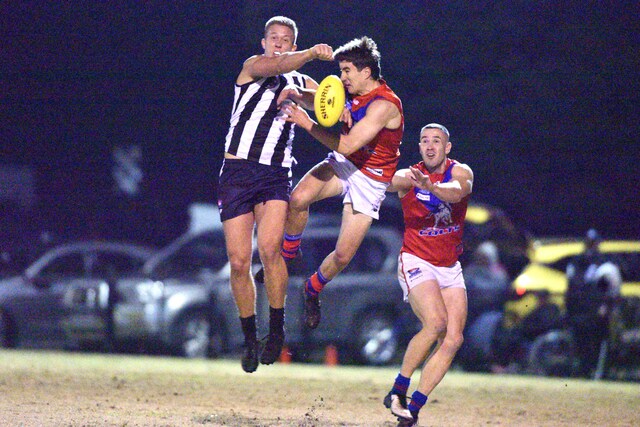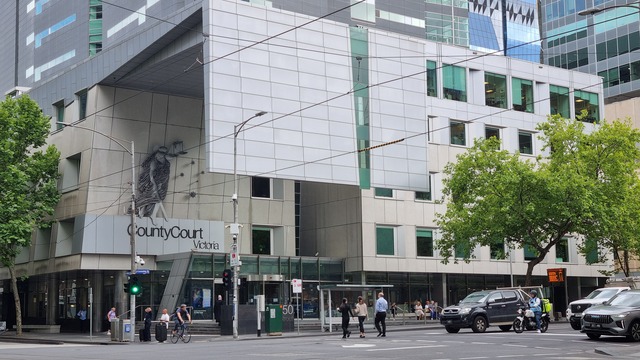Sporting clubs right across the nation need to be prepared for what’s coming.
As the world continues to come to grips with the magnitude of the Covid-19 pandemic, its sporting codes – both at professional, and community level – are planning for their return at some stage in 2020.
In making that call, they’re rightfully following the advice of the various government and health bodies.
But there’s a stark reality facing some clubs – that a return this year, to a drastically-reduced season – could cause much more financial harm than good.
Influential West Gippsland football figure Terry Dillon – through his company TD Solutions Sports Administration – has developed the ‘Community Football Covid-19 Financial Assessment Tool’ in conjunction with the AFL.
The AFL has then forwarded it to all community clubs across Australia, and it’s been shared with all state sport and recreation departments across the nation.
Effectively, it’s designed to help clubs clearly understand the effects that the coronavirus could have on their financial bottom line.
While there’s currently a working group in place conducting a Victoria-wide review into the salary cap and points systems in light of the pandemic, Dillon’s personal view is that caps should drop from 65 to 75 per cent across the state.
Dillon said a statewide, proportionate salary cap shift is “critical”, and explained why.
“Playing half a season doesn’t mean clubs get half the revenue,” he said.
“We’d all love for the season to proceed – given the obvious community benefits, and the return to normality it would provide.
“There’s no one who wants footy and netball to return this year more than me, but there’s a greater risk for many clubs’ viability if the season proceeds.
“If we don’t take the hard line here at the current time there will be more clubs in financial trouble than not at the end of either this year or next. Sadly – some won’t recover.”
TD Solutions has predicted that up to 80 per cent of clubs won’t be ready for what’s to come, and a good percentage of those will end up in debt.
Dillon also predicted a participation drop-off of sorts, with the retirement of some senior players likely hastened by the new environment.
“AFL Victoria has a difficult job in balancing regional clubs’ need for players to travel to play, and their own viability,” he explained.
“And there’s a need to protect regional clubs.
“There’s an argument for zero player payments for 2020 if the season does begin. There are just too many unknowns. Drastic times require drastic measures.”
While Dillon acknowledged that would cause a huge adjustment for players and coaches at a community level, he said there’d be a short-term impact on the game for a long-term benefit.
At one stage this year, TD Solutions sampled 30 community football netball clubs in a span of 45 days. Incredibly, 25 of those were in debt.
“Two thirds of clubs were already under financial pressure pre-coronavirus,” Dillon said.
“So what about now, or post-corona?”
Dillon urged all clubs to utilise the Community Football Covid-19 Financial Assessment Tool – to identify the shift in financial models moving forward, and to plan accordingly.
“Complete the free model and find out where your shortfall is,” he said.
“Act now, and get moving.
“80 per cent of clubs have not done a budget, post-Covid-19. That is a red flag for all community clubs.
“We need to focus on the long-term survival of clubs, but the next 12 months is a critical period.”
Based off the free club financial estimator on the TDS website, it’s estimated that some clubs will experience a more than 70 per cent revenue drop in the wake of the coronavirus pandemic, given negative impacts to sponsorship, fundraising, membership, registrations, consumer disposable income, and a range of other factors – including potentially starting a season in the winter months.
“If the clubs do nothing, their revenue shortfall will be in that range, however we’ve provided six here-and-now revenue solutions that will reduce the clubs’ exposure,” Dillon said.
“It’s one thing to identify the problem, but we’re also helping with the solution.”
Dillon is running a series of webinars to educate clubs on how to minimise their exposure during the pandemic.
TD Solutions brings his lifetime’s work – including working for 17 years at AFL clubs such as Collingwood (as chief financial officer under Eddie McGuire), Hawthorn (as chief operating officer under Ian Dicker and Jeff Kennett, and acting chief executive), and St Kilda (as chief operating officer) – to the fore to help those running local sporting clubs.
For more on the Community Football Covid-19 Financial Assessment Tool and Guide, visit www.tdcommunitysolutions.com.au.







